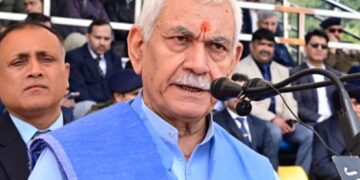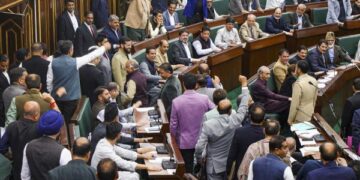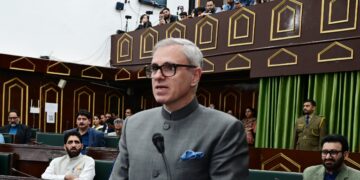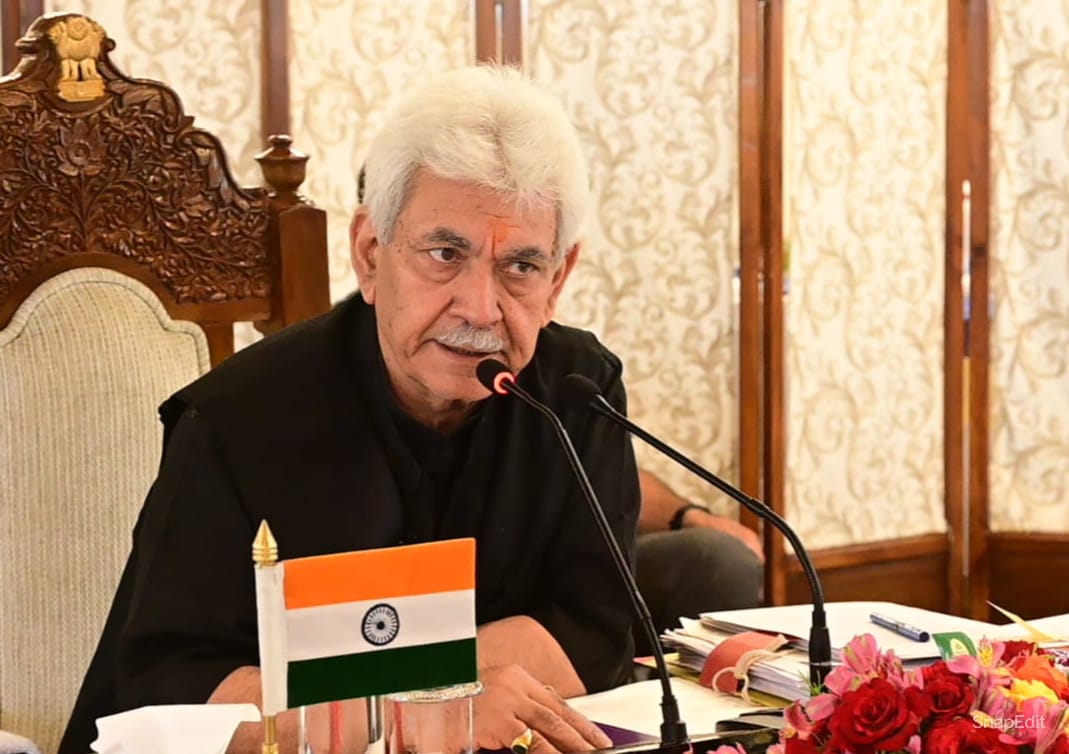Srinagar: The Jammu and Kashmir High Court on Wednesday quashed the case and charge-sheets filed by the Enforcement Directorate (ED) against former Jammu and Kashmir chief minister Farooq Abdullah and others in connection with its money laundering probe linked to alleged irregularities in the Jammu and Kashmir Cricket Association (JKCA).
Abdullah was absolved by virtue of a writ petition by co-accused Ahsan Ahmad Mirza and Manzoor Gazanfar after Justice Sanjeev Kumar set aside the charges framed against the accused in the scam tried in the court of Principal District and Sessions Judge in 2020.
In its 13-page order, Justice Sanjeev Kumar came down heavily on the ED saying it “is not an authority or investigating agency in any manner superior to CBI, nor is vested with or conferred the power and jurisdiction to sit in appeal against the investigation made and the conclusion drawn later.”
The judge, who had reserved his judgement on August 07, said that going by the CBI charge-sheet, it is evident that the offence of money laundering is not made out.
Justice Kumar said that he found merit in the plea of the petitioners and regretted his inability to accept the argument of the Additional Solicitor General of India. “The complaint, the charge-sheet and the charges framed by the designated Special Court (Principal Sessions Court, Srinagar) vide order dated 18.03.2020 are quashed,” he ordered.
It said that the predicate offence registered by the Central Bureau of Investigation (CBI) did not involve any scheduled offence under the Prevention of Money Laundering Act (PMLA)
It held “in the absence of there being any case registered for commission of scheduled offence or any case pending enquiry or trial in respect of scheduled offence, authorities under PMLA have no jurisdiction to register ECIR and launch prosecution for offence of money laundering under Sections 3/4 of PMLA. When there is no scheduled offence having been registered or pending enquiry or trial, there are no proceeds of crime and, thus, there is no offence of money laundering under Section 3 of the Act.”
The authorities under PMLA cannot resort to action against any person for money laundering only on the assumption that the property recovered by them must be proceeds of crime and that a scheduled offence has been committed unless the same is registered with jurisdictional police or pending enquiry by way of complaint before the competent forum, the court said.
It said that the jurisdictional police, the CBI, has not registered any case for commission of any scheduled offence. Enquiry by way of complaint before the Chief Judicial Magistrate, Srinagar, is also not in respect of any scheduled offence.
The court observed that the argument put forward by the Additional Solicitor General of India that the ED is not bound by the conclusions drawn by the CBI and it can independently look into the material contained in the charge-sheet to come to a conclusion that the petitioner has committed a scheduled offence to justify registration of case under PMLA, cannot be accepted for more than one reasons.
“The Enforcement Directorate is not an authority or investigating agency in any manner superior to CBI, nor is it vested with or conferred the power and jurisdiction to sit in appeal against the investigation made and the conclusion drawn by the latter. The Enforcement Director being a parallel investigating agency in respect of crimes under PMLA must accept the investigation carried by another investigating agency and the conclusion drawn by the said agency in respect of commission of the offences other than the offences under PMLA,” it said.
It ruled that the CBI has investigated the matter and presented a charge-sheet before the CJM for commission of offences, which are not specifically mentioned in the schedule.
It said that it is now for the CJM to consider the entire material collected during investigation and determine as to what offences are disclosed to have been made out against the accused arraigned therein.
The ED, if so permitted, may approach the CJM and canvass before it that apart from the offences of Section 120-B, 406 and 409 RPC, scheduled offences like Section 411 and 424 RPC are also made out.
If the court of CJM frames charges against the petitioner for any of the scheduled offences, it shall be open for the ED to register fresh ECIR and launch prosecution against the petitioner, if he is found to have been involved in the commission of offence of money laundering under Section 3 PMLA.
“The Enforcement Directorate cannot be permitted to pre-empt the outcome of an exercise, which is yet to be undertaken by a competent court of law at the stage of charge/discharge. As on date, the charge-sheet presented by the CBI is only in respect of Section 120-B, 406 and 409 RPC, which are admittedly not the scheduled offences,” said the court.
It noted that the ECIR was registered and prosecution was launched by the respondents only on the assumption that Section 120-B RPC in respect of which there was a case registered by the CBI against the petitioner was a scheduled offence.
The petitioners pleaded that with regard to the allegations of misappropriation of JKCA funds, the CBI has already registered an FIR for commission of offences under Sections 120-B, 406 and 409 RPC.
Both the offences i.e. S.406 and S.409 RPC, are not the scheduled offences as defined under Section 2(y) of PMLA, they argued through their counsels.
The commission of scheduled offence is a sine qua non for offence of money laundering and, therefore, in the absence of commission of scheduled offence, there could be no proceeds of crime and no offence under PMLA, they said.
They argued that the facts, as alleged in the complaint filed by the respondent, ex facie do not disclose commission of offence of money laundering, in that, the money alleged to have been laundered by the petitioner is not generated/derived from a criminal activity relating to a scheduled offence.
The ED had named National Conference chief Abdullah, Ahsan Ahmad Mirza (former treasurer of JKCA), Mir Manzoor Gazanffer (another ex-treasurer of the JKCA) and some others as accused in the charge sheet.
Shariq J Reyaz, representing Mirza and Gazanfer, had moved the high court saying that the ED had no jurisdiction over the case and the charge-sheets filed against his clients should be quashed.
The ED was represented by Additional Solicitor General S V Raju through virtual mode.
Mirza was arrested by the ED in September, 2019 and a charge sheet was filed against him in November that year and the trial in that complaint is going on.
Abdullah has been questioned multiple times by the agency in the case.
The federal probe agency had attached assets belonging to Abdullah and others worth Rs 21.55 crore under three separate orders issued by it in the past.
The agency’s case is based on a 2018 charge-sheet filed by the CBI against the same accused.
The CBI charge sheet filed against Abdullah, Mirza, Gazanffer and former accountants Bashir Ahmad Misgar and Gulzar Ahmad Beigh alleged “misappropriation of JKCA funds amounting to Rs 43.69 crore” from grants given by the Board of Control for Cricket in India (BCCI) to promote the sport in the erstwhile state between 2002 and 2011.
The ED had earlier said its probe found that JKCA received Rs 94.06 crore from BCCI in three different bank accounts during financial years 2005-2006 to 2011-2012 (up to December 2011).
It had alleged that several other bank accounts were opened in the name of the JKCA into which the funds were transferred. The bank accounts along with the existing bank accounts were later used for laundering JKCA funds.
The court was hearing arguments on whether a case for offence under money laundering was made and whether the ED can examine and register a case already being pursued by another agency.








